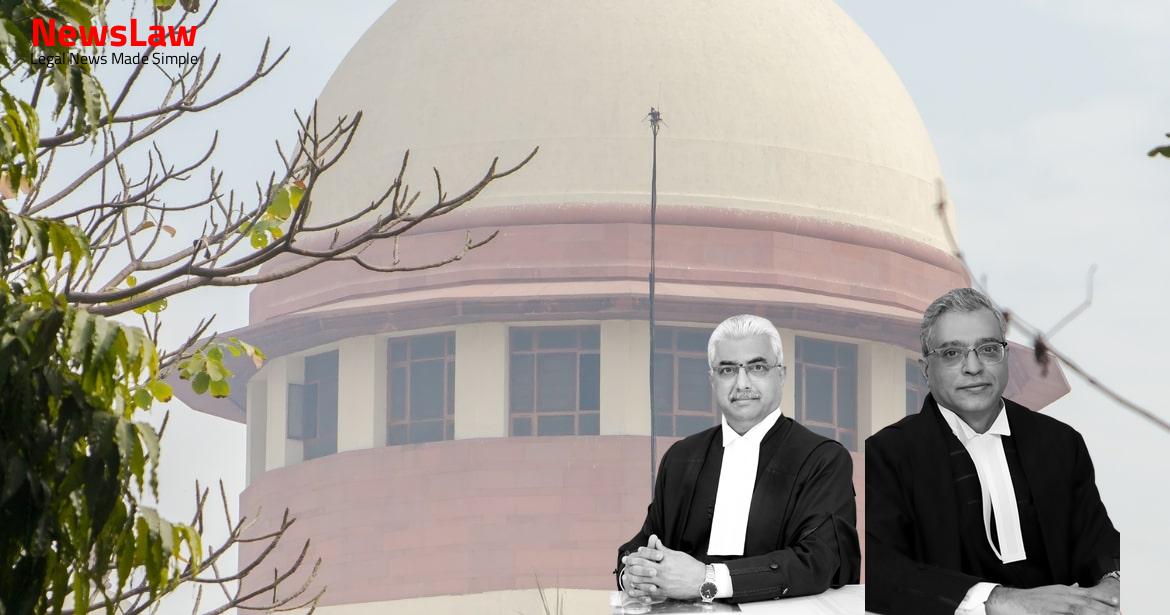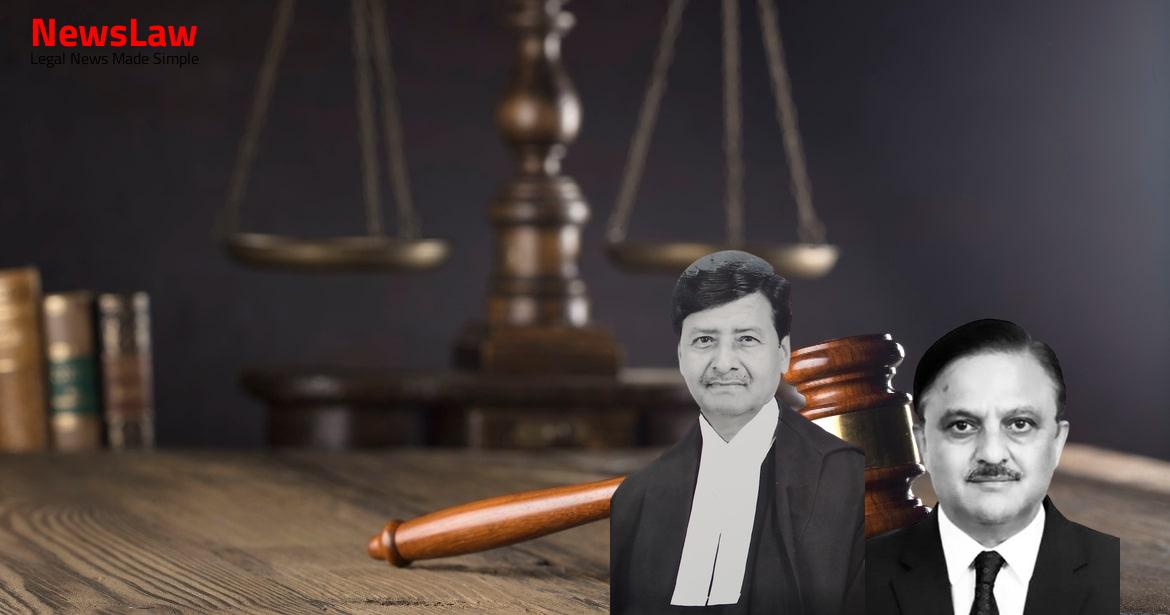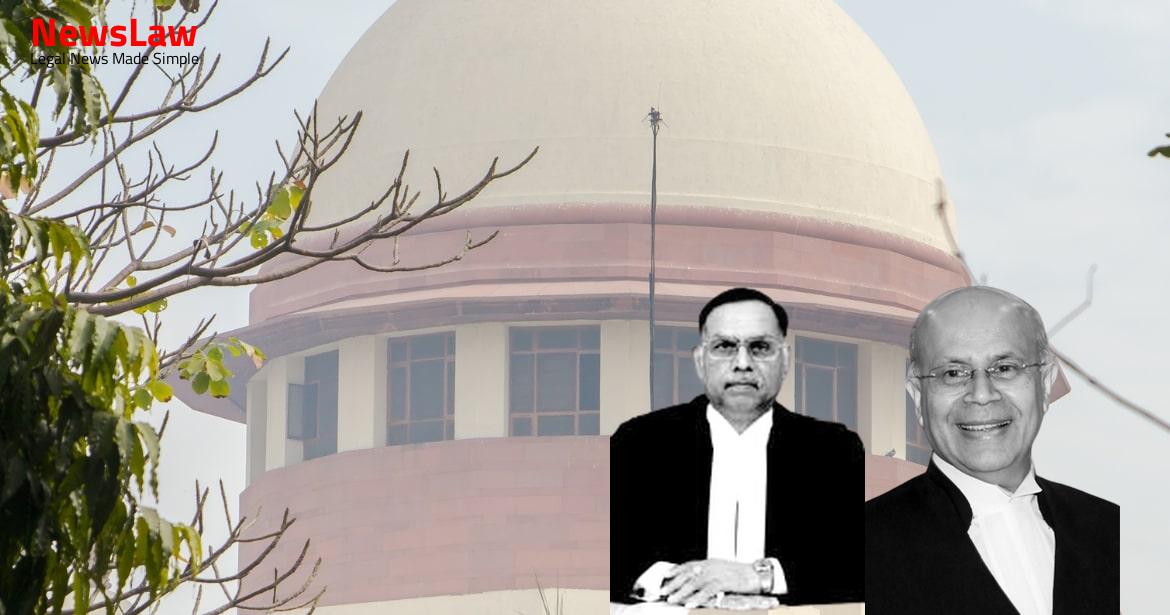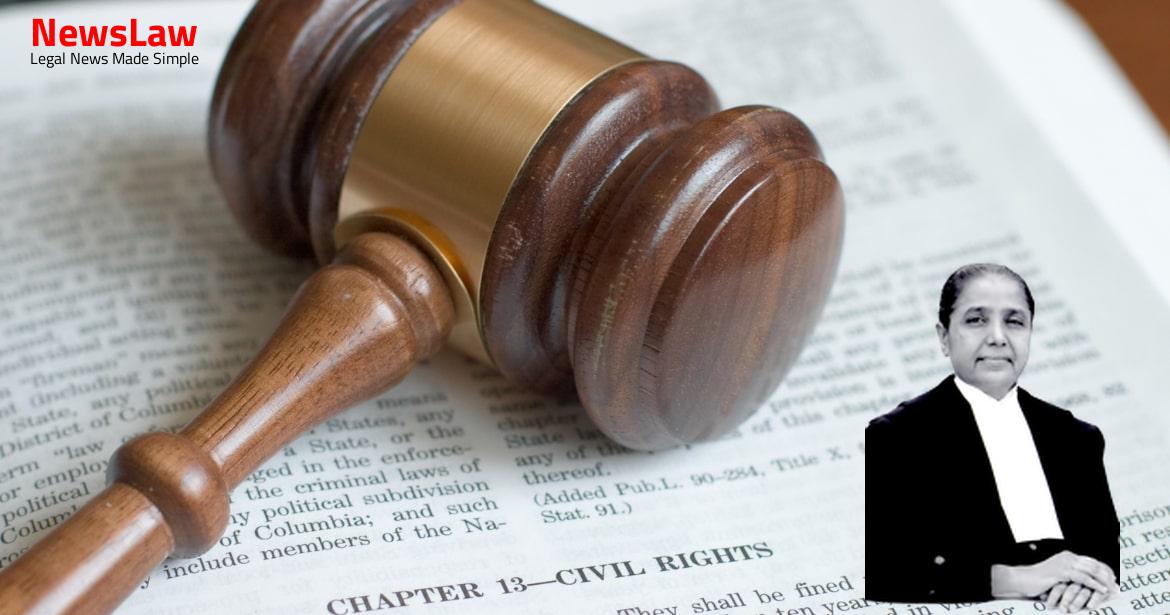In a recent legal ruling, the Supreme Court of India deliberated on the case of ‘Shriram Chits vs. Raghachand Associates’ regarding the commercial purpose of services obtained. The consumer forum’s decision sheds light on the definition of a consumer and the criteria for proving a commercial purpose. The court’s dismissal of the appeal has significant implications for consumer protection and service provider responsibilities. Let’s delve deeper into this important judgement.
Facts
- Complainant sought redressal for non-refund of subscription amount due to illegal termination of chit fund business by OP in 1996.
- District Forum addressed the objection that complaint was not maintainable.
- OP filed writ petitions against the order of Additional Registrar.
- Complaint alleged deficiency of service due to illegal termination of chit fund business and non-refund of subscription amount.
- Subscription made in chit group 53005/Ticket No.9 for Rs.1,00,000 payable at Rs.2500 per month for 40 months.
- Complainant previously redressed consumer grievance before Principal Consumer Disputes Redressal.
- High Court directed complainant to approach Consumer Forum as cases not maintainable under Chit Funds Act.
- OP raised preliminary objection that complainant does not qualify as a consumer under Consumer Protection Act, 1986.
- Complainant requested OP to repay chit amount deposited until stoppage of business.
- State Forum upheld District Forum’s decision on deficiency in service.
- State Forum did not address the challenge to the maintainability of the complaint raised in the appeal.
- State Forum ordered refund of claimed amount with 18% interest per annum.
Also Read: Nalininath Mitra vs. State of Bihar – Land Lease Renewal Case
Issue
- The District Forum framed the issue of whether the service obtained by the complainant was for a commercial purpose.
- To demonstrate that the service was obtained for a commercial purpose, the OP relied on two circumstances: (a) the statement in the complainant that there was an ‘understanding between complainant and opposite party to promote chit business’; (b) findings of an internal audit conducted by the OP.
- Section 2 (7) of the Act was referenced to determine if the complainant proved the alleged deficiency in service by the OP.
Also Read: Delhi Metro Rail Corporation v. Value Added Tax Officer: Upholding the Timely Refund Mandate
Arguments
- The Senior Advocate for the OP argued that the complainant did not plead or prove that the services availed were for securing livelihood through self-employment.
- It was emphasized that the onus to prove the services were availed for earning livelihood rests on the complainant.
- Reference was made to cases such as Laxmi Engineering Works (1995) 3 SCC 583, Leelavathi Kirtilal Medical Trust v. Unique Shanti Developers (2020) 2 SCC 265, Cheema Engineering Services (1997) 1 SCC 131, and Paramount Digital Lab (2018) 14 SCC 81.
- Consumer forums must decide technical pleas raised by service providers regarding the commercial purpose of services/goods bought by consumers.
- If service providers claim services were for commercial purposes, they may argue complaints filed on behalf of such persons are not maintainable.
- It is essential to establish guidelines for consumer forums on handling technical pleas raised by service providers regarding the commercial nature of the obtained services/goods.
Analysis
- The carve out clause in the second part of the definition of consumer excludes a person from being considered a consumer.
- The onus of proving that the person falls within the carve out clause rests on the service provider.
- The service provider must prove that the service obtained was for a commercial purpose.
- If the service provider proves the commercial purpose, the burden then shifts to the complainant to show the service was exclusively for earning livelihood through self-employment.
- The onus of proving a commercial purpose is on the service provider, not the complainant.
- The standard of proof required is a ‘preponderance of probabilities.’
- The issue of maintainability hinges on whether the complainant falls within the definition of a consumer.
- The District Forum misdirected by focusing on the definition of a ‘person’ instead of analyzing if the service was acquired for a commercial purpose.
- The onus shifts back to the complainant only if the service provider successfully proves a commercial purpose.
- The consumer forum can make a proper decision only if the burden of proof is correctly assigned.
- The definition of a consumer has three parts, each with specific criteria that must be proven.
- The NCDRC and the District Forum handled the maintainability issue in a similar manner.
- The definition of a consumer has evolved over time through amendments to the Consumer Protection Act.
- The current definition of a consumer includes a person who buys goods or hires services for personal use, excluding those bought for resale or for any commercial purpose.
- The expression ‘commercial purpose’ does not include the use of goods or services exclusively for earning a livelihood through self-employment.
- The scope of ‘buys any goods’ and ‘hires or avails any services’ includes transactions both offline and online, through electronic means, teleshopping, direct selling, or multi-level marketing.
- Three Forums have found a proved deficiency of service.
- A plea without proof and proof without plea hold no evidence in the eyes of the law.
- The party has not led any evidence to support its case beyond restating its claim on affidavit.
Decision
- The appeals are dismissed.
- The decision is in favor of the original names of the parties involved.
- No further action is required as the appeals have been dismissed.
Case Title: SHRIRAM CHITS (INDIA) PRIVATE LIMITED EARLIER KNOWN AS SHRIRAM CHITS (K) PVT. LTD. Vs. RAGHACHAND ASSOCIATES (2024 INSC 403)
Case Number: C.A. No.-006301-006301 – 2024



